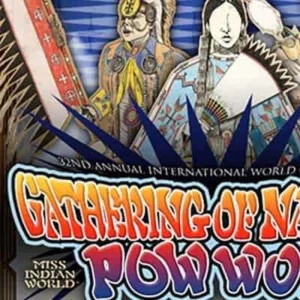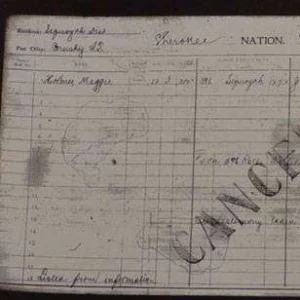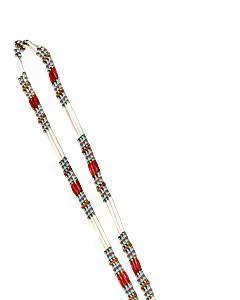If you're currently enrolled or planning to enroll in higher-level education, make sure you read up on the American Indian College Fund and more here.
Are you Native American and either planning to attend or already attending college?
Are you looking for ways to fund your college education?
If so, you should consider applying to the American Indian College Fund.
Only 14% of American Indians and Alaska Natives (AIAN) age 25 and older have a college degree. That's why the College Fund dedicates 73% of its resources to supporting education directly.
In this article, we'll discuss this and other opportunities for Native American College students and those aspiring to be.
The American Indian College Fund's Programs
The AICF “invests in Native students and tribal college education to transform lives and communities.” This is its mission statement.
Of the donations AICF receives:
- 73% goes to scholarships, programs, and public education;
- 5% to management and general needs;
- and 22% to fundraising.
Tribal Colleges and Universities (TCUs)
According to the AICF, at TCUs, Native cultures and traditions are “woven into the curricula, providing a space for Native students to learn and be understood.”
There are three basic criteria TCUs must adhere to:
- They are tribally chartered.
- The majority of their board be Native American.
- The majority (51%) of their student body be Native American.
Full Circle Scholarship
This is the American Indian College Fund's signature scholarship. It is open to those attending tribal colleges and universities or other non-profit, accredited schools. It requires proof of tribal affiliation.
Applications are accepted every year from Jan 1 – May 31. The AICF determines student eligibility and awards the scholarships. All applicants are e-mailed either an award or denial notice annually by August.
Tribal College and University Scholarship
To apply for this scholarship, you must be attending a tribal college or university and you must prove tribal affiliation.
TCU Scholarships are awarded on a semester basis, and applications open on January 1st and August 1st each year. Deadlines differ for each tribal college or university. You should contact your school’s financial aid office to learn more.*
*If you have already completed a Full Circle Scholarship application, and indicated that you will attend a tribal college or university, a prompt will appear in the Applications dashboard.
Other Scholarships for Native Americans
Various other scholarship opportunities are available to Native Americans from government offices, private organizations and other sources, as listed below.
Federal Programs (Scholarships and Grants for Native Americans)
These funding sources originate with the U.S. government.
Bureau of Indian Education (BIE)
BIE's Higher Education Grant/Scholarship Program offers financial assistance to college-bound members of federally- recognized tribes.
An applicant must be enrolled in an accredited college or university and working towards an associate’s or bachelor’s degree.
Indian Health Service (IHS)
The IHS Scholarship assists qualified American Indian and Alaska Native health professions students.
For this scholarship, a recipient must establish an educational foundation for each stage of their pre-professional career.
Federal Grants Available to All Students
- Federal Pell Grants
- The Federal Supplemental Educational Opportunity Grant
- The Academic Competitiveness and National SMART Grants
Benefits.gov
- Indian Higher Education Grant Program:
More information on Benefits.gov - Matching Grants to Tribes for Scholarship Program:
More information on Matching Grants to Tribes for Scholarship Program
State-Based Aid
Three states offer scholarships for Native American students. Check these links for more information:
Scholarships from Tribes and Advocacy Groups
These are sources of funding that originate within the Native American community.
The American Indian Graduate Center
The American Indian Graduate Center offers over 20 scholarships and fellowships. These are to support students pursuing undergraduate, graduate, and professional degrees. Note that these scholarships have varying deadlines.
The Cherokee Nation
The Cherokee Nation offers several scholarships for its members.
The Cheyenne and Arapaho Tribes
These tribes have scholarships and other funding opportunities for members pursuing higher education. Note that there are downloadable application forms at the bottom of the page.
The Office of Navajo Nation Scholarships & Financial Assistance (ONNFSA)
This entity manages scholarships that can all be applied for with one application.
Powwows.com
You will find more tribal scholarships and scholarships on Powwows.com's Native American Scholarship site.
Miscellaneous Scholarships
These are scholarships that don't fit a particular category but offer some great opportunities. The first one, however, is not a scholarship itself:
Scholarship System's Ultimate Guide
This Guide to Native American Scholarships and Grants for College provides a very comprehensive list of funding available to Native American students.
The Gates Millennium Scholars Program
This scholarship is funded by a grant from the Bill & Melinda Gates Foundation. It helps students from historically underrepresented groups.
It gives students the “Opportunity to complete an undergraduate college education in any discipline area of interest.”
The Tyonek Native Corporation
This is an Alaska Native Corporation and parent company to a growing number of subsidiary businesses. Their non-profit arm, The Tebughna Foundation, manages scholarships available to shareholders.
The Association on American Indian Affairs
This organization offers several scholarships annually. They are available to students pursuing a wide variety of academic disciplines.
The Continental Society Daughters of Indian Wars
This organization awards two Native American Scholarship annually for $2,500 and $5,000. The recipient's career goals should involve working with Native Americans.
The Daughters of the American Revolution (DAR)
The DAR offers a one-time-only American Indian Scholarship. This $4,000 award is available to a Native Americans student of any age, from any tribe, and in any state. They prefer an undergraduate student.
Proving Ancestry
Nearly all Native American scholarships and grants specifically require documentation of tribal affiliation. The following resources should be helpful if you have undocumented Native ancestry:
- Family and tribal records
- The Federal Bureau of Indian Affairs
- Tahtonka, a Federally prepared guide to the 562 officially recognized Tribal Nations
- The Dawes Indian Census Rolls (held at the National Archives)
- PowWows.com's Ancestry Information
The process can be trying, though, so don't give up! Just plan ahead. For some helpful advice on the process, you can read our blog on tribal membership criteria here.
Can't Wait to See That Diploma!
Scholarships can be hard to find in general. Finding ones you're qualified for is even harder. But they're out there–and you need to be persistent! The American Indian College Fund can offer help, though. And so can other entities discussed here.
Finding ways to pay for college is hard, but then so is college education itself. It's worth it, though.
Native American leaders are needed in many areas: tribal government, state and federal government, business, education, health care, and many others.
And if you're new to tribal life or have been away for some time, now is the time to reconnect. Why not begin by getting involved in PowWows.com?
PowWows are one of the great Native American benefits.
Whether you're Native or not, you should attend a PowWow to have a lot of fun and learn about the culture.
Last Updated on May 3, 2020 by Paul G



